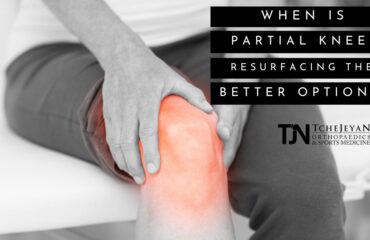One of the most common questions Dr. Tchejeyan has gotten in his more than 20 years of practice is how long Total Joint Replacements lasts. The short answer? About 30 years. But the long answer might surprise you!
Today’s joint replacements are far different than those of 50 years ago. The implants and techniques of the 1970s were very different than today, not only in product material but in technology and process as well. For this reason, Dr. Tchejeyan has never had to re-do or revise one of his own replacement surgeries in the duration of his 20-year career due to wear. Choosing a good surgeon with adept knowledge of today’s medical advancements makes all the difference in the longevity of these procedures.
Better Devices
In today’s joint replacements, an artificial implant articulates against a plastic polyethylene device, which has been impregnated with Vitamin E in the manufacturing process. Why vitamin E? The natural oxidation process that takes place leads to premature wear of the polyethylene device. Vitamin E acts as an antioxidant, helping to prevent oxidation! It’s scientific advancements like this that allow for medical implant devices to last over 30 years.
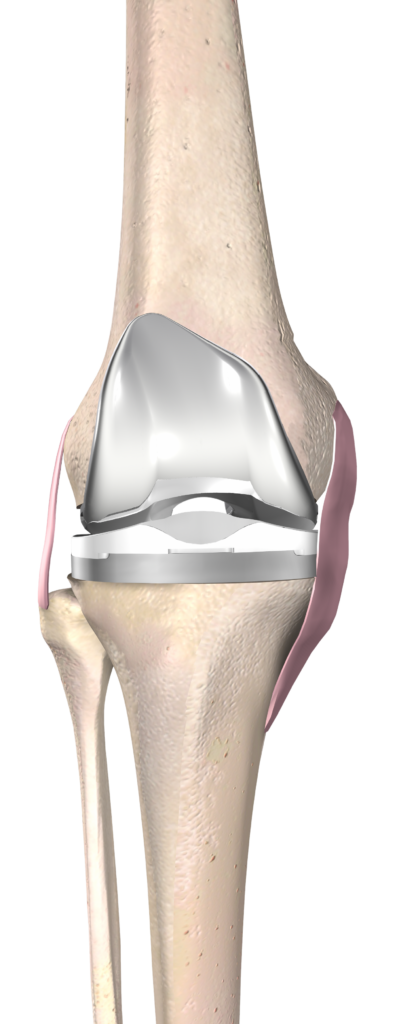
With hip replacements, the artificial articulation is made of ceramic. This ceramic “ball” matches up with the specially treated polyethylene bearing. Ceramic, being hard and low friction, helps these implants last. Low friction between these smooth materials means minimal wear over time.
When it comes to knee replacements, polished cobalt chrome implants articulate against the treated polyethylene. Alignment and balance are important here. Knee joints can’t be too tight or too loose, so properly balanced and aligned knees allow for more longevity within the joint than antiquated techniques of the past.
Better Techniques
In addition to better materials, the technology and processes in today’s joint replacement surgeries are imperative components of long-lasting joint replacement surgeries. For instance, people used to delay getting TJR surgery due to the fact that it didn’t last very long. Revision surgeries were needed due to dislocations, loosening, or infections. Each of these margins of error have been narrowed by great medical advancements.
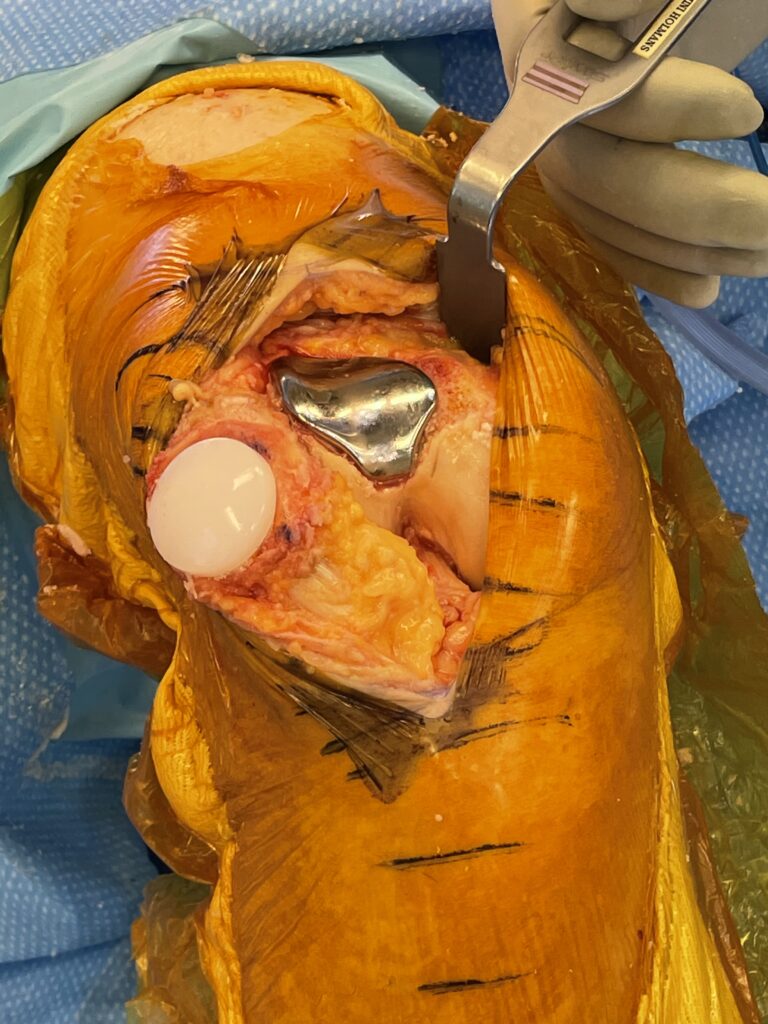
Dislocations were usually a result of improper placement. Robotic surgery has allowed for more precision with the joint placement, meaning there’s less error with the implant’s alignment and balance. Dr. Tchejeyan specializes in joint replacement surgeries using the Mako Robotic Arm, which helps surgeons attain precision and efficiency in the operating room.
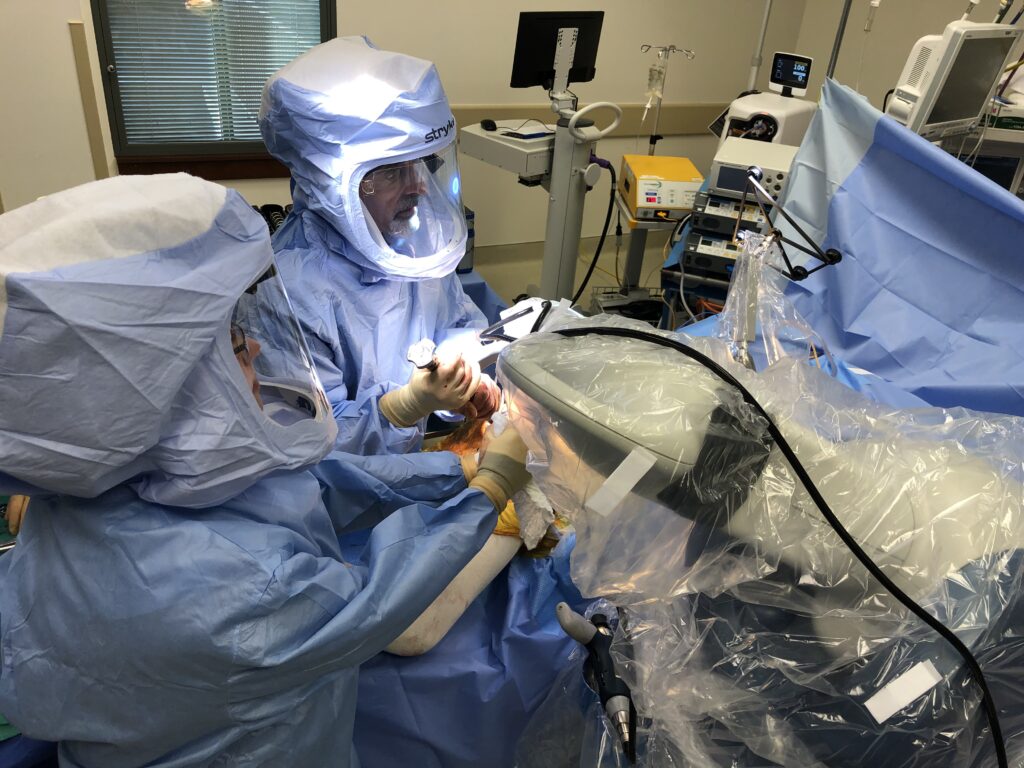
Pictured above, Dr. Tchejeyan in sterile protective gear as he performs a total joint replacement surgery with the robotic arm.
Infections associated with TJR surgeries have also diminished over the years with the many new protocols in place. TJR is often an outpatient procedure performed at a specialty hospital. Operating rooms are heavily sterilized – from the surgeon’s protective gear to the air flowing in and out of the room. Antibiotics are given before and after surgery to prevent infection, and patients are directed to wash with an antibacterial body wash for days prior to surgery. This reduces the risk of bacterial infections, thereby limiting causes to revisit surgery.
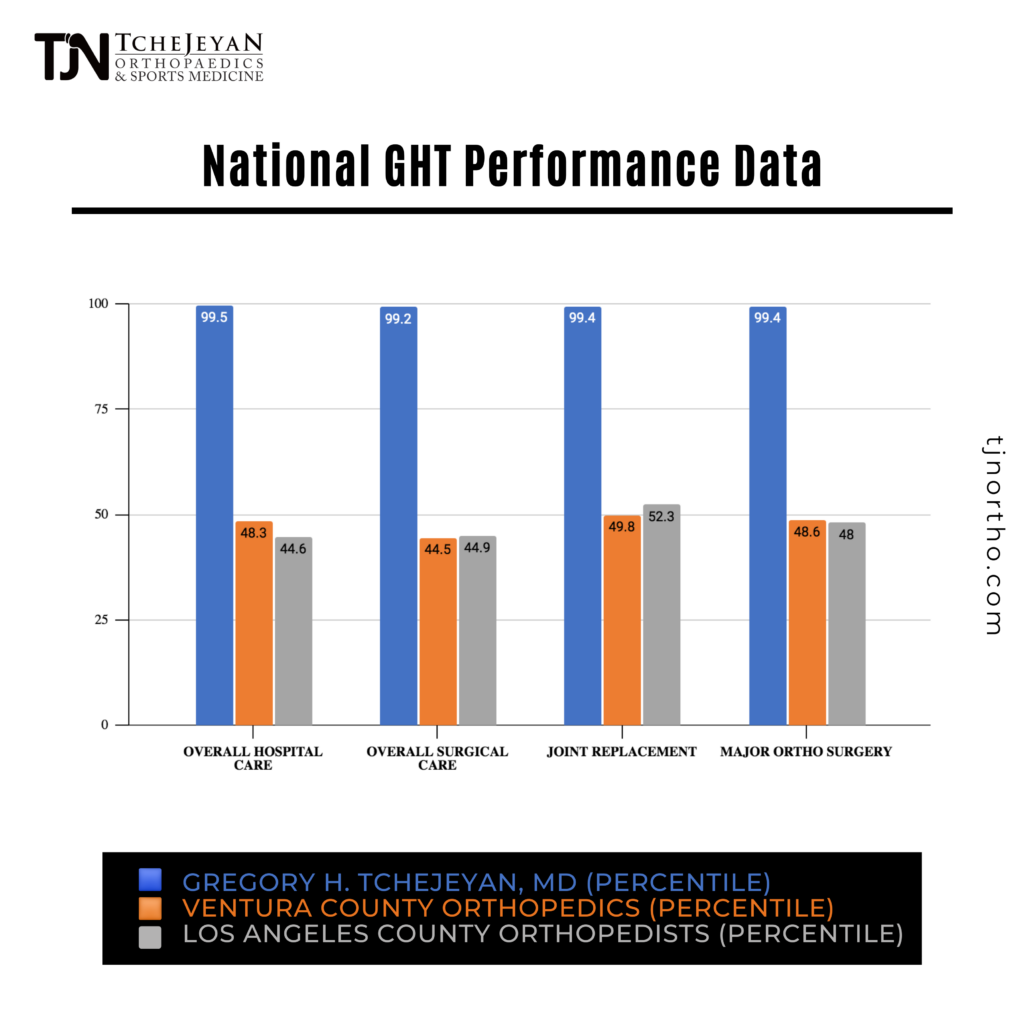
The above chart shows Dr. Tchejeyan’s top-rated performance data at the national level. He has one of the leading lowest complication rates in the nation.
Don’t Delay Your Treatment!
People used to delay joint replacements in an effort to gain maximum use out of their new joints. The problem with delaying TJR is that years of decreased mobility are passing by while you wait. Patients ultimately became more crippled or develop joint deformities, stiffness, and bone loss, which created a need for more surgery, and in turn, a longer recovery in the end.
Today’s criteria for surgery candidacy should not be dictated by feelings like “wait as long as you can before surgery” but by your daily pain and/or declining hip or knee function. If you can’t take part in normal day-to-day activities, it’s probably time to consider surgery. Don’t fall for the common myths about knee replacement! Today’s joint replacements last so long, there’s really no reason to delay your feeling better!
For more information on Joint Replacement, visit our FAQ’s page here.


